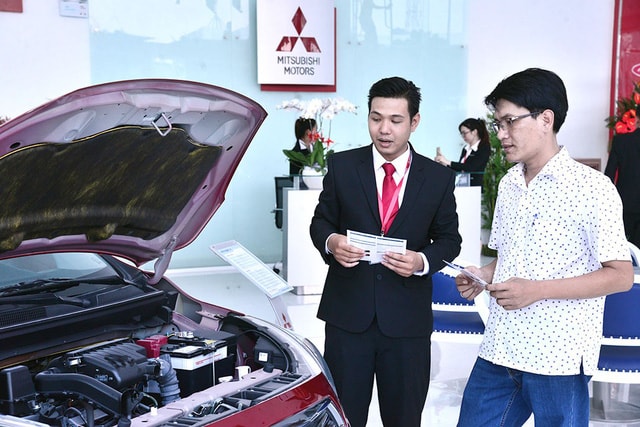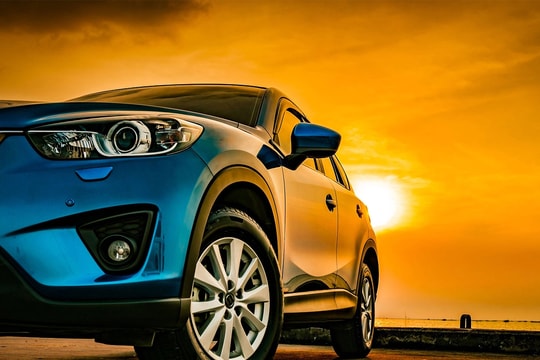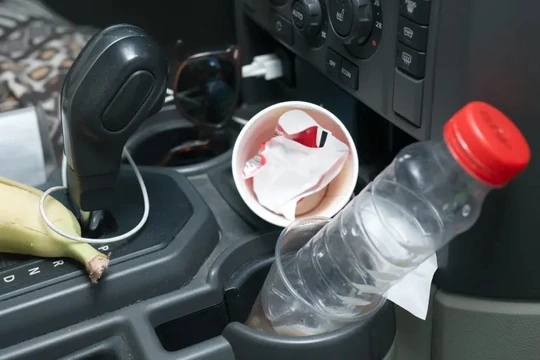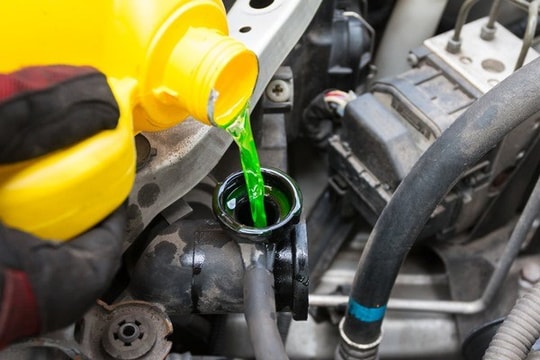After Honda and Toyota, many companies stop exporting cars to Vietnam.
Not only Honda and Toyota announced to stop exporting cars to the Vietnamese market from 2018, many imported car companies also said they cannot bring cars to Vietnam in the near future.
 |
| Imported cars will be scarce after many companies temporarily stopped importing cars into Vietnam. Photo: C.Trung |
Mr. Pham Anh Tuan, head of the policy subcommittee of the Vietnam Automobile Manufacturers Association (VAMA), confirmed that Honda, Toyota and several other foreign car manufacturers will stop exporting cars to Vietnam, due to strict regulations in Decree 116/2017 issued in October 2017.
Car import facing difficulties due to procedures?
Contrary to the expectation of being able to buy cheap cars from the beginning of 2018 when the import tax rate for cars is 0%, many people were disappointed when car import companies complained about difficulties and there will be no imported cars to sell to the Vietnamese market in the near future.
There are also some businesses that import cars before 2018 to sell to customers who have placed deposits in advance, but the number of imported cars is only a few hundred.
Many car import businesses said they could not import cars due to strict regulations in Decree 116/2017.
For example, with unused cars, the importing enterprise must provide a copy of the quality certificate and type of imported car issued by a competent foreign agency or organization... but the foreign side does not provide this certificate.
According to a representative of Honda Vietnam, up to now there has been no circular guiding businesses to adjust their documents accordingly.
"Despite their efforts, the companies cannot change anything because they cannot clear customs when importing," he said.
Ford Vietnam representative also predicted that there will be a shortage of imported cars in Vietnam in the coming time due to regulations in Decree 116.
A Toyota dealer in Ho Chi Minh City said that the number of Toyota cars on the market will be scarce, especially the car models that are imported to Vietnam in large numbers such as Yaris, Hilux trucks, sports cars like Fortuner and luxury cars Lexus.
Although the company has a manufacturing and assembly plant in Vietnam, every year it has to import thousands of cars from Thailand, Indonesia and Japan...
With the regulations in this decree, according to dealers, many foreign car brands will face difficulties when exporting to Vietnam.
Domestically assembled cars benefit
A tour around some imported car showrooms in Ho Chi Minh City shows that many popular car models in the Vietnamese market are less popular, many customers also said they were very disappointed because they could not find a satisfactory car model, or if they could, the price was higher than expected.
Mr. Pham Cong Truong (Binh Thanh District) complained that for the past few days he has been looking to buy a new Toyota Fortuner, but every dealership he went to, the staff said they didn't have any in stock, and the few dealerships that did have stock were not the color he wanted.
A Toyota car dealer in District 5 said Toyota Vietnam only announced the cancellation of orders for imported cars in the first two months of 2018, but did not give a timeline for resuming supply.
Other imported models such as Hilux and Yaris are still available but in limited quantities and according to dealers, these are remaining inventory.
At Ford Vietnam dealers, when asking to buy imported models such as Everest or Explorer, customers are informed that they are out of stock.
A representative of Volkswagen Vietnam also said that many of its car models could not be brought to Vietnam. However, the company has worked with the car manufacturer in Germany to complete the paperwork to meet the requirements.
"It is expected that in the second quarter of 2018, the Tiguan Allspace model will be imported to Vietnam, but it is impossible to predict the other models" - this person said.
According to car dealers, from the time of placing an order with a supplier in Vietnam until the car is delivered, it takes 3-4 months for cars imported from the ASEAN region and about 5 months for cars from non-ASEAN countries.
If imported again in March 2018, it will take until mid-year for the cars to be available for sale. The possibility of imported cars being scarce in the near future is inevitable.
To have a car to use during Tet, many customers have switched to buying domestically assembled cars, sales of these types of cars have increased significantly.
In particular, used cars have also increased in price as many people have turned to buying used cars. Some cars have increased in price by tens of millions of VND, even models that are in short supply have increased by 50-100 million VND/car.
No impact on Vietnam's auto market
Speaking with Tuoi Tre, a leader of the Ministry of Industry and Trade said that the suspension of auto manufacturing enterprises' imports is the business freedom of enterprises, and does not affect the auto market because supply and demand are determined by the market and are the business rights of enterprises.
"A newly issued policy may cause initial confusion, but once complied with, businesses will not have to redo these documents again. Vehicle testing certainly does not cost up to 500 USD, not up to 10,000 USD as some information suggests because there are very clear regulations on administrative procedures, fees and charges" - this person said.
Don't let Vietnam become a technology dumping ground
While foreign enterprises complain of difficulties, Thaco Truong Hai and Hyundai Thanh Cong believe that the regulations in Decree 116 are reasonable, and cars imported to Vietnam must meet the technical requirements currently applied in Vietnam.
Requiring the issuance of "a copy of the certificate of quality of imported automobile types issued by a competent foreign agency or organization" is necessary to ensure the quality of imported vehicles, limit poor quality automobiles, and protect consumers.
Many experts also believe that using technical barriers is necessary to prevent Vietnam from becoming a technology dumping ground and to encourage domestic enterprises to develop Vietnam's automobile industry.








